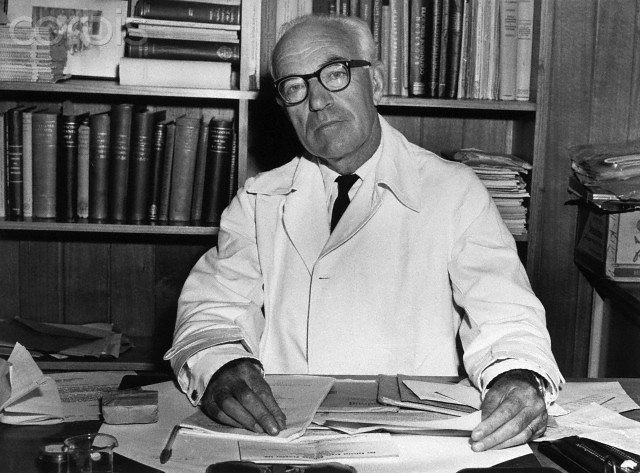Thanks to him, we understood the behavior of nerve cells: Who is John Eccles?
John Eccles was a neurophysiologist. He was awarded the 1963 Nobel Prize in Physiology or Medicine for showing how messages pass between nerve cells in mammals, including humans.

It was already known that these messages can be stimulating or blocking. Eccles discovered that both excitatory and inhibitory processes are not electrical but chemical in nature.
Andrew Huxley and Andrew Alan Hodgkin, who worked independently in the same field, were other winners of the 1963 Nobel Prize.
In the years following Cajal's discovery, fierce debate erupted among scientists about how signals passed from synapse to neuron. Some scientists said the messages were carried electrically, while others claimed the process was chemical.
Sir John Carew Eccles (27 January 1903 – 2 May 1997) was an Australian neurophysiologist and philosopher who won the 1963 Nobel Prize in Physiology or Medicine for his work on the synapse. He shared the prize with Andrew Huxley and Alan Lloyd Hodgkin.
John Carew Eccles was born on January 27, 1903, in Melbourne, Victoria, Australia. His father is William James Eccles and his mother is Mary Carew. Both were teachers. Like his two sisters, John was homeschooled until the age of 12.
He attended Warrnambool High School and Melbourne High School. At the age of 17, he won a scholarship to study Medicine at the University of Melbourne. As an avid athlete, he broke the Australian Universities pole vault record.
Eccles graduated from Melbourne with first-class honors at the age of 22 in 1925.
A Rhodes Scholarship took him to Oxford University, where he earned his doctorate in 1929. Sherrington used the term synapse to describe the space between neurons and had a strong influence on Eccles' future work. Despite being 46 years apart, the two became close friends.
After earning his doctorate, Eccles continued his research work at Oxford for eight more years, after which he returned to Australia.
During his time in New Zealand, Eccles enjoyed exchanging ideas with the philosopher of science Karl Popper.
Eccles was a Christian and occasionally a practicing Roman Catholic. He believed in Providence.
Personal Life
Eccles was known as Jack by his friends. In 1928, at the age of 25, he married Irene Frances Miller, a devout Catholic, from New Zealand. The couple had nine children: five daughters and four sons. One of his daughters, Rosamond, became a neurophysiologist and worked with her father.
In 1968, when Eccles was 65, he was forced to retire under Australian Civil Service law. Eccles moved to America to continue working. He also divorced Irene and married his colleague, Czechoslovak neurophysiologist Helena Táboríková. He moved away from his extended family in Australia to America.
Eccles has published 19 books (12 as sole author) and more than 500 scientific papers during his career.
He retired at 72 and moved with his second wife, Helena, to the small Swiss town of Contra. In retirement, he wrote extraordinary articles on the mind-brain problem that had fascinated him for much of his life.
Sir John Carew Eccles died at the age of 94 in a hospital in Locarno, Switzerland, on May 2, 1997.
